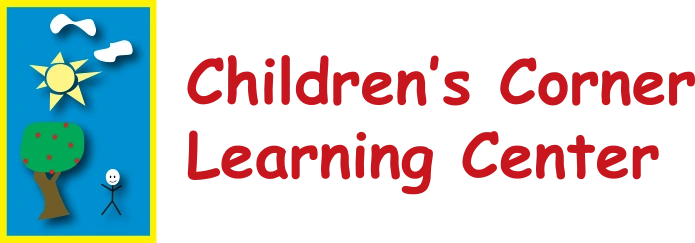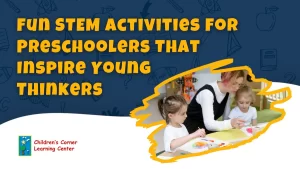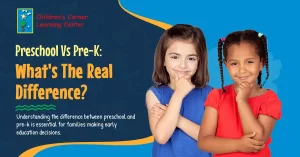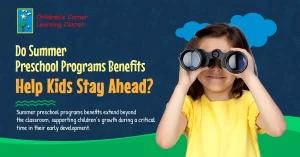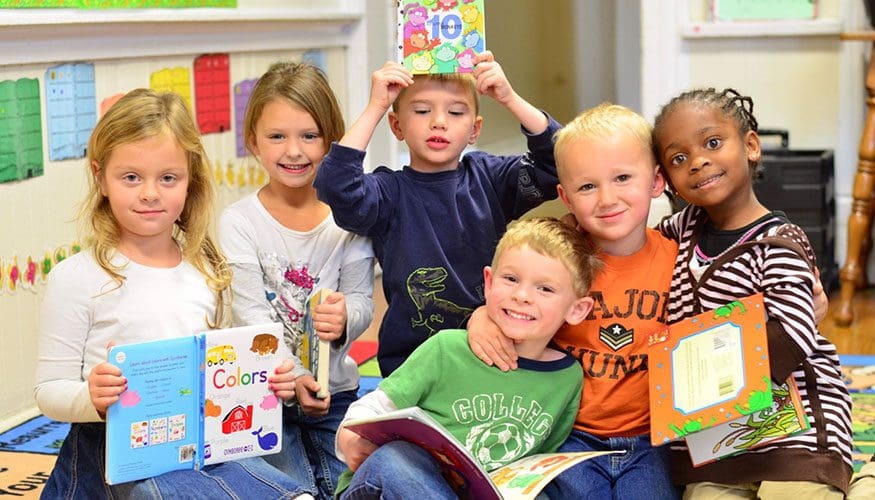What do you learn in early childhood education? This critical stage of development is where children acquire the foundational skills that shape their future learning, behavior, and relationships. Early childhood education builds language, motor skills, social interaction, and emotional understanding competencies through structured play, guided instruction, and nurturing support.
These early experiences prepare children for academic success and foster independence, confidence, and a lifelong curiosity for learning. High-quality early learning programs are designed to meet the whole child’s needs—supporting growth across multiple domains in a secure and engaging environment.
Understanding What Do Pre K Learn in Early Education Settings
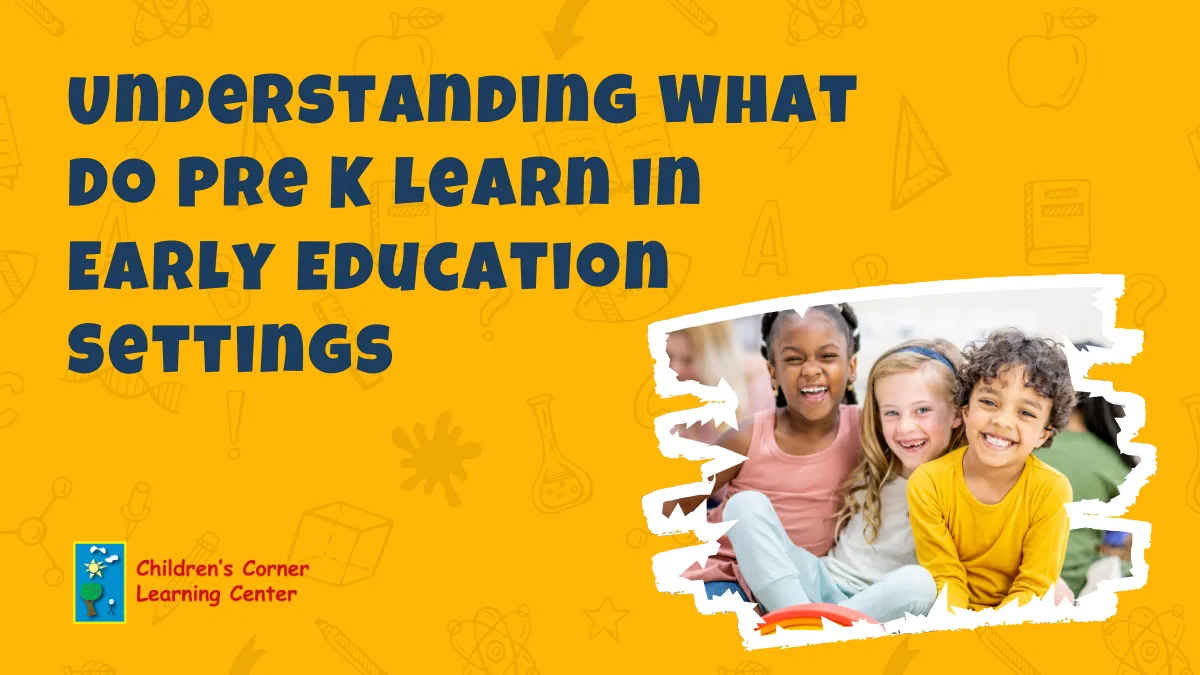
Pre-Kindergarten (Pre-K) is a foundational year in early childhood education, where children are introduced to the structure of a classroom while developing essential academic and social skills. When families ask, “What do Pre-K learn?” the answer goes far beyond letters and numbers. In a high-quality early learning and development center, Pre-K children are guided through a well-rounded curriculum that addresses multiple domains of growth—cognitive, emotional, social, and physical.
Foundational Academic Skills
Pre-K programs introduce early literacy and numeracy concepts through play-based, engaging methods. Children are not expected to master reading or math but are encouraged to build familiarity with core academic foundations. Key areas of focus include:
- Letter and sound recognition: Children learn to identify uppercase and lowercase letters and associate them with sounds.
- Pre-writing skills: Through drawing, tracing, and name-writing, children develop fine motor control and handwriting readiness.
- Counting and number sense: Activities involving objects, songs, and movement teach basic counting and introduce number concepts.
- Patterning and sorting: These early math skills encourage logical thinking and visual discrimination.
These skills are embedded in interactive activities that are developmentally appropriate and tailored to each child’s pace.
Social and Emotional Development
Equally crucial to academic learning is developing emotional awareness and social skills. Pre-K classrooms can interact, collaborate, and express feelings in a supportive environment. Programs emphasize:
- Sharing and turn-taking: Children learn to wait, cooperate, and engage respectfully with others.
- Identifying emotions: Educators guide children in recognizing and naming emotions in themselves and their peers.
- Conflict resolution: Through teacher-facilitated problem-solving, children manage disagreements with empathy and communication.
- Self-regulation: Children develop the ability to manage their impulses, follow instructions, and transition smoothly between activities.
These social-emotional skills form the foundation for future classroom behavior and interpersonal relationships.
Independence and Responsibility
A Pre-K classroom also fosters self-reliance through routines and age-appropriate responsibilities. Children are encouraged to make choices, complete tasks, and participate in daily classroom roles. Examples include:
- Self-help tasks: Zipping coats, washing hands, and organizing personal items build confidence and independence.
- Classroom jobs: Rotating responsibilities, such as line leader or cleanup helper, instills accountability and pride.
- Following multi-step directions: Children practice listening and executing tasks sequentially, strengthening focus and memory.
Encouraging independence at this stage helps children prepare for the more structured kindergarten environment.
Exposure to Enrichment Activities
Many Pre-K programs integrate enrichment opportunities that expand children’s experiences and interests. These may include:
- Art and music: Creative expression supports cognitive development and allows children to explore different forms of communication.
- Science and nature: Hands-on discovery helps children observe, ask questions, and begin to understand the world around them.
- Physical activity: Outdoor play and movement-based games develop gross motor skills and support physical health.
Together, these experiences provide a well-rounded foundation that nurtures curiosity and joy in learning.
The Role of an Early Childhood Education Application in Daily Learning

An early childhood education application is more than a tool for curriculum planning—it is an essential framework that guides daily instruction, supports developmental milestones, and ensures consistency across learning experiences. This application refers to educators’ structured and intentional approach to delivering meaningful, age-appropriate education in high-quality early learning and development centers. It is grounded in research and designed to meet the whole child’s needs—academically, socially, emotionally, and physically.
Supporting Developmental Objectives
At the core of every early childhood education application is a commitment to addressing the unique needs of children in their early years. Daily learning activities are carefully aligned with developmental benchmarks across key domains. These include:
- Language and literacy: Guided activities promote vocabulary development, early writing, and listening comprehension.
- Mathematical thinking: Children are introduced to number recognition, sorting, patterns, and measurement through hands-on learning.
- Physical development: Structured play, movement activities, and classroom tasks support gross and fine motor skills.
- Social-emotional growth: Programs intentionally build self-awareness, emotional regulation, and peer interaction skills.
By integrating these goals into everyday instruction, educators provide balanced learning that prepares children for long-term academic and social success.
Structuring the Daily Routine
An effective early childhood education application provides a reliable structure for the daily schedule, ensuring that children experience a balanced mix of guided instruction, exploration, rest, and play. A typical day includes:
- Morning routines: Children ease into the day with greetings, songs, and calendar activities that set expectations and build community.
- Learning center rotations are small-group or individual activities focused on specific skills, such as literacy, math, or science.
- Outdoor and physical play: Time for movement and social interaction to support health and gross motor development.
- Circle time and group discussions: Opportunities to share ideas, practice listening, and participate in community-building conversations.
This predictable routine helps children feel secure and supports their ability to focus, follow directions, and engage meaningfully with their environment.
Individualized Learning Within a Shared Framework
A key benefit of a structured early childhood education application is its flexibility to support individual learning paths. While the program provides a consistent structure, educators can adapt activities based on a child’s specific needs, interests, and learning styles. This includes:
- Assessment-based planning: Teachers use observations and assessments to tailor instruction and set appropriate goals.
- Differentiated activities: Learning tasks are modified to accommodate varying abilities and pace of development.
- Personalized support: Educators offer one-on-one guidance and reinforcement to ensure every child stays engaged and supported.
This individualized approach ensures that all children, regardless of background or ability, are allowed to thrive.
Promoting Family Engagement and Communication
A practical education application also includes tools and strategies to involve families in learning. Consistent communication and shared goals strengthen the connection between home and school. This may involve:
- Daily progress updates: Information on meals, behavior, and learning activities is shared through notes or digital platforms.
- Parent-teacher conferences: Opportunities to discuss development, set goals, and review progress.
- Home-based learning ideas: Families can use activities and tips to extend learning beyond the classroom.
By including families in the educational journey, programs reinforce learning and provide children with a strong, consistent support system.
Clarifying What Grades Are Early Childhood and Their Learning Objectives
Understanding what grades are in early childhood is essential for families considering when and how to begin their child’s educational journey. Early childhood education typically spans from infancy through third grade, covering a critical period of rapid development. During this time, children acquire foundational skills in communication, social-emotional learning, literacy, numeracy, and motor coordination. Each grade level within early childhood education plays a unique role in supporting the child’s overall growth.
Infants and Toddlers (Ages 0–2)
Although not traditionally considered part of formal schooling, early care programs for infants and toddlers support development during the earliest stages of life. Learning is focused on sensory exploration, emotional bonding, and basic motor skills.
Key objectives include:
- Responsive relationships: Building secure attachments through consistent caregiver interaction.
- Sensory and motor development: Encouraging movement, balance, and coordination.
- Language exposure: Listening to speech, songs, and stories to develop early communication.
These early experiences lay the groundwork for all future learning and create a secure, nurturing environment where children feel safe to explore.
Preschool and Pre-Kindergarten (Ages 3–5)
Preschool and Pre-K are the most widely recognized stages of early childhood education. These years serve as the transition from home-based learning to structured classroom experiences. Children learn through play, guided instruction, and social interaction at this stage.
Core learning objectives include:
- Emergent literacy and numeracy: Recognizing letters, numbers, shapes, and beginning phonemic awareness.
- Social-emotional development: Practicing empathy, cooperation, and self-regulation.
- Self-help and independence: Managing personal care tasks, following routines, and making simple choices.
- Creative expression: Participating in art, music, and imaginative play to foster innovation and confidence.
Preschool and Pre-K programs are designed to nurture the whole child, preparing them for kindergarten’s increased academic and behavioral expectations.
Kindergarten (Age 5–6)
Kindergarten is the formal entry point into the school system and marks the beginning of compulsory education in many areas. The focus shifts slightly from exploratory learning to more structured academic instruction while continuing to support emotional and social development.
Learning objectives at this stage include:
- Early reading and writing: Identifying sight words, writing letters and simple words, and beginning sentence structure.
- Basic math concepts: Understanding numbers, counting to 100, simple addition and subtraction, and pattern recognition.
- Science and inquiry: Exploring essential science topics through observation and hands-on experiments.
- Classroom behavior: Listening attentively, following instructions, and working independently and in groups.
Kindergarten helps solidify routines and expectations, setting the stage for success in elementary grades.
Grades 1–3 (Ages 6–9)
Though often viewed as part of elementary school, first through third grade are still considered early childhood due to their developmental significance. These years focus on building academic skills while reinforcing social-emotional growth.
Learning objectives include:
- Reading fluency and comprehension: Moving from learning to read toward reading to learn.
- Expanded writing skills: Writing complete sentences, short paragraphs, and structured narratives.
- Math proficiency: Building number sense, solving word problems, and applying mathematical reasoning.
- Critical thinking: Encouraging analysis, questioning, and problem-solving through integrated subjects.
During these years, educators foster independence, responsibility, and collaboration, preparing children to transition to upper elementary grades.
Conclusion
Early childhood education lays the foundation for a lifetime of learning, discovery, and personal growth. From the earliest stages of development through the early elementary years, children gain critical skills in communication, social interaction, literacy, math, and emotional regulation. When families understand what you learn in early childhood education, they can make informed choices that align with their child’s needs and developmental goals. A high-quality program nurtures each child’s potential by offering structured, supportive experiences in a safe and engaging environment.
Schedule a personalized tour today to see how our early learning and development centers support whole-child growth every step of the way. Visit https://www.childrenscornergroup.domainstaging.us/book-a-tour/ or call us at (800) 933 7757 to get started.
